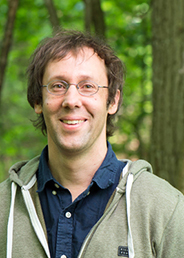Research
We develop mathematical and simulation models in order to study the evolution of social behaviors; in particular helping behaviors (cooperation, altruism, benevolence), harming behaviors (spite, warfare, malevolence, exploitation), and learning (trial-and error, innovativeness, social learning). We try to understand and disaggregate the role of several factors for the evolution of these behaviors, and focus on different level of analysis:
Individual decision process -- What types of learning rules evolve? How does individual learning and experience shape social behaviors? Does natural selection favor individual having rational preferences?
Life-history evolution -- What are the selection pressures on increased lifespan and cognition in the human lineage? Is this the result of an ecological or social pressure? Did lifespan increase because more learning was needed to achieve subsistence in hunter-gatherers?
Transition to large-scale human societies -- What drove the transition from small-scale societies centered on kinship to large-scale societies comprising exchange and interactions among untold number of individuals? What are the roles of language, institutions, warfare, and trade in this process?
In addition to these topics, we also work on some classical evolutionary theory questions: what is the generic selection pressure on phenotypic traits in demographically structured populations? How do selection, genetic drift, and mutation interact to shape the evolution of behavior?
Why models are useful
The world is a misty region.
The first explorers used unaided vision.
Mathematics is the lantern by which what was before dimly visible now looms up in firm, bold outlines.
The old phantasmagoria disappear.
We see better.
We also see further.
Irving Fisher (1892)
Group leader
Post-Docs
- Dr. Max Burton-Chellew (co-supervised with Prof. Santos Pinto)
- Dr. Ludovic Maisonneuve
- Dr. Arthut Weyna
Graduate students
--
Former Group Members
Post-Docs
- Dr. Piret Avila
- Dr. Mauricio Gonzalez-Forero
- Dr. Charles Mullon (co-supervised with Prof. Keller)
- Dr. Simon Power
- Dr. Tadeas Priklopil
- Dr. Jorge Peña
- Dr. Sam Yeaman
PhD Students
- Slimane Dridi
- Erica Fumagalli
- Matthias Wubs

